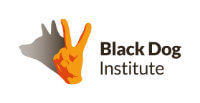Sign up below to receive monthly eMHPrac newsletters and updates about the latest digital mental health news, events, and resources.
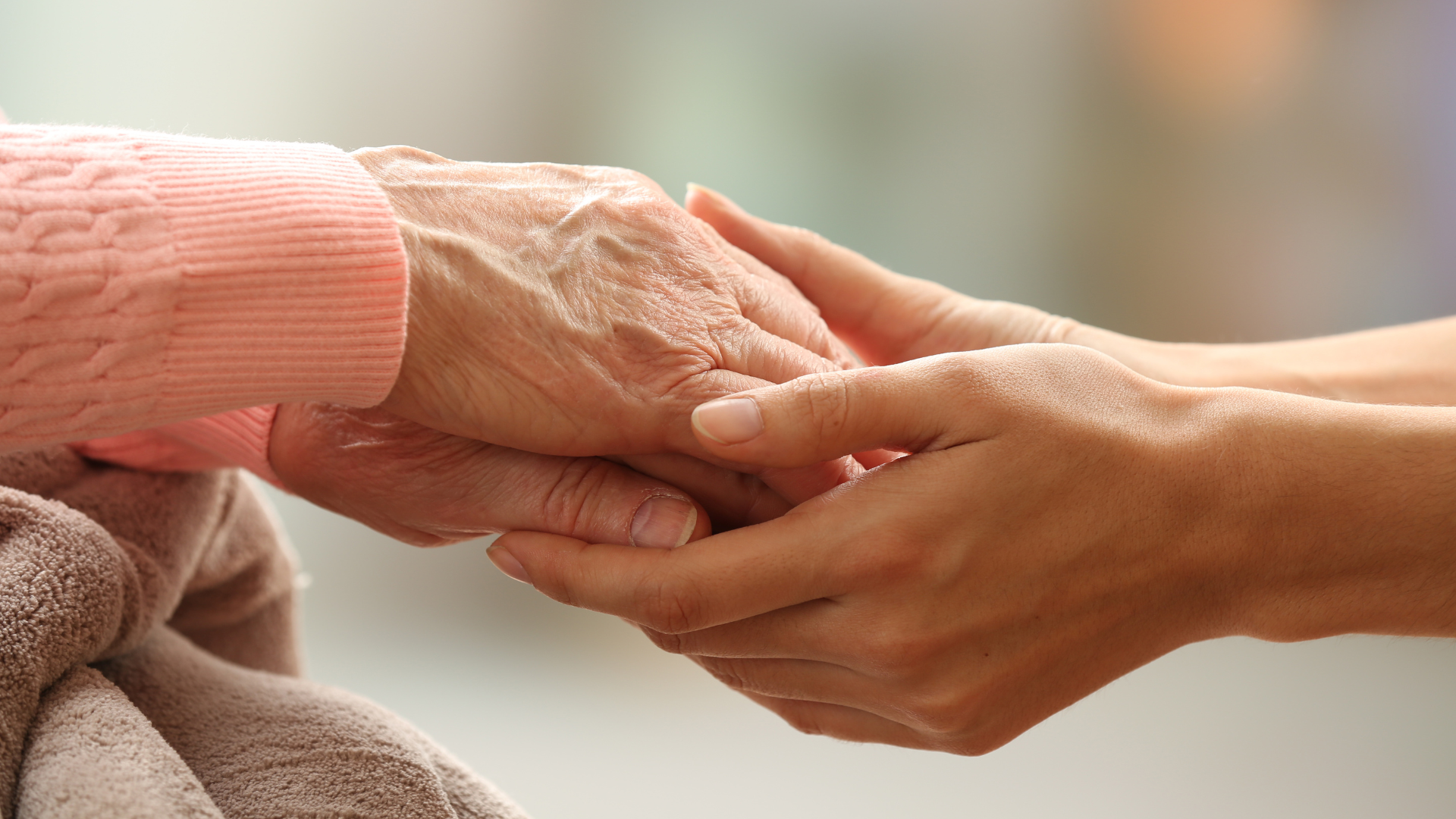
About one in 12 people have a diagnosed mental illness, with mental health issues now surpassing all other chronic illnesses, according to Census data released last month. The 2021 Census was the first time information was collected on diagnosed long-term health conditions, revealing an alarming reality about Australians’ welfare.
The pandemic has taken (and continues to take) a huge toll on individual health and wellbeing, with a recent national study from the University of Wollongong revealing that almost one third of respondents were housing insecure and almost 60 percent had difficulty accessing healthcare during the pandemic.
Young Australians in particular have been significantly affected, with this age group reporting far higher levels of psychological distress than any other age group. With International Youth Day coming up, it is a timely reminder for the need for tailored services to help improve the mental health of some our most vulnerable. In this edition of the eMHPrac newsletter, we profile a range of purpose-built digital wellbeing tools for young Australians.
In this edition:
- International Youth Day and World Senior Citizens Day
- WellMob Tips for Workers
- Podcast: Digital Mental Health Musings Episode 3
- See the eMHPrac team at these upcoming conferences
- Read the latest dMH research articles
- This month’s featured service: Inclusee
International Youth Day and World Senior Citizens Day
International Youth Day and World Senior Citizens Day both occur this month, acknowledging and celebrating both the oldest and youngest members of our society and some of our most vulnerable. Digital mental health services seem a naturally fitting option for young people, most of whom are digital natives, and find digital platforms acceptable and appealing. However, despite older adults often being stereotyped as having limited experience with digital technologies, there is emerging evidence that older adults show excellent adherence to digital interventions and equal the likelihood of achieving good outcomes as their younger counterparts. The message with digital tools and older adults is to put all assumptions aside and give them a go!
Below are a range of digital mental health resources designed specifically for young people and older Australians.
Resources for Young People
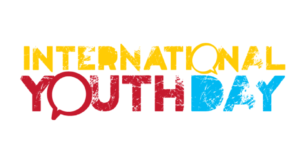
BiteBack
Online activities, psychoeducation, and positive psychology aiming to promote wellbeing and resilience in young people (12-25 yrs).
https://www.biteback.org.au/
Niggle
An app from KidsHelpline that helps young people track their wellbeing and find info, quizzes, videos, podcasts and tips to help tame their ‘niggles’ and improve their social and emotional health.
https://kidshelpline.com.au/niggle
YourCrew
An app that allows young people to ask for help when they need it most from people they know and trust.
https://www.harrisonriedelfoundation.com/how-we-keep-young-people-safe/app-landing-page
THIS WAY UP ‘Teen Worry and Sadness Program’
Online CBT program to help teenagers learn practical strategies for managing worry and low mood with our self-paced online treatment program for teens and their parents. Self-help and clinician-assisted options available.
https://thiswayup.org.au/programs/teen-worry-and-sadness-program/
Resources for Older Adults
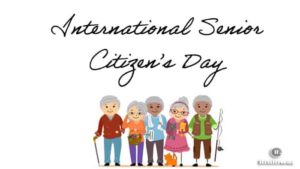
MindSpot ‘Wellbeing Plus Course’
An online treatment course that helps older adults (aged 60+) improve their psychological health and overcome symptoms of depression and anxiety.
https://www.mindspot.org.au/course/wellbeing
Aged Care Grief and Bereavement Service
Phone and online counseling and information for people living and working in aged care, their families, and supporters.
https://aged.grief.org.au/
Inclusee
A social connection program that connects seniors to friendly volunteers, supporting them to be happy, healthy, and socially active.
https://inclusee.org.au/
WellMob Tips From Workers
Practitioners share tips on using the WellMob website with Indigenous Clients
Want to learn about how online mental health and wellbeing tools can be used to better engage with your Indigenous clients? The WellMob website team have developed some testimonial videos of practitioners sharing tips on how to do this in practice.
The WellMob website is a digital library to help the health workforce easily find over 250 online resources on Indigenous wellbeing. These resources are particularly useful for non-Indigenous practitioners to use in and out of session with Indigenous clients around health literacy and promotion, as well as for their own professional development.
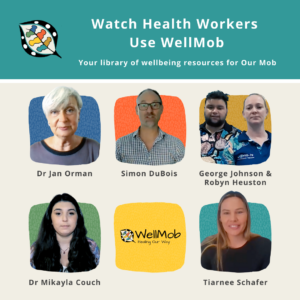
To watch a 2 minute video of Psychologist Simon Dubois share tips around engaging young people in conversation around digital mental health. https://wellmob.org.au/key-resources/resources/45443/?title=How+a+psychologist+uses+technology+to+connect+with+young+people&contentid=45443_1
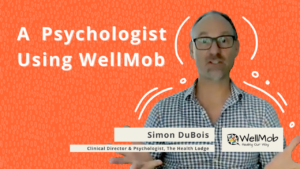
All of the short workforce testimonials can be found on the WellMob website here: https://wellmob.org.au/
Podcast: Digital Mental Health Musings
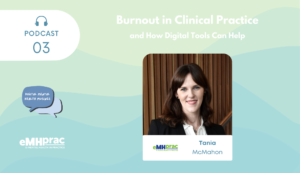
In episode 3 of the new season of Digital Mental Health Musings Dr Ruth Crowther speak to Dr Tania McMahon about burnout in clinical practice and how digital tools can help.
Dr Tania McMahon is a returning guest on the Digital Mental Health Podcast. She is a Senior Research Officer within the eMHPrac team and a registered Clinical Psychologist. Tania has been working in ePsychology research for over a decade, helping develop and test a range of innovative therapies and technologies, including telephone-based treatments, online programs, and apps, to help improve mental health and wellbeing. She also works in a private practice setting treating adolescents and adults, and is an enthusiastic advocate of e-Mental Health services and resources to complement the treatment she provides.
Drawing on their experience as psychologists in private practice, Ruth and Tania discuss the unique challenges faced by clinicians, how digital mental health resources can help in practice as well as support clinicians’ own mental health, and how to start navigating the wide landscape of digital mental health. They also share their own experiences in clinical practice, the effect of the pandemic on workloads, tackling health professionals increased risk of burnout, and how to start tackling it.
Access Digital Mental Health Musings on Soundcloud, Apple Podcasts, Spotify, Google Podcasts, Amazon Music, and Deezer.
Catch us at these upcoming conferences

National Rural Health Conference
2 to 4 August 2022, Brisbane
The Rural Health Conferece is an annual event for health professionals, consumers, students, researchers or others interested in healthy, sustainable, and resilient rural communities. Over two days attendees can exchange information on the latest developments, engage with others in the sector and engage with health and wellbeing.
Speak to the eMHPrac team at our trade booth, and catch a presentation by eMHPrac Director Heidi Sturk on the use of digital mental health services by rural health practitioners.
To register for the conference or view the program, click the link below:
On our reading radar
Philippe T, Sikder N, Jackson A, Koblanski M, Liow E, Pilarinos A, Vasarhelyi K Digital Health Interventions for Delivery of Mental Health Care: Systematic and Comprehensive Meta-Review JMIR Ment Health 2022;9(5):e35159 URL: https://mental.jmir.org/2022/5/e35159 DOI: 10.2196/35159
“The COVID-19 pandemic has shifted mental health care delivery to digital platforms, videoconferencing, and other mobile communications. However, existing reviews of digital health interventions are narrow in scope and focus on a limited number of mental health conditions. To address this gap, we conducted a comprehensive systematic meta-review of the literature to assess the state of digital health interventions for the treatment of mental health conditions.
… A majority (52%) of research involved the treatment of substance use disorders, 29% focused on mood, anxiety, and traumatic stress disorders, and >5% for each remaining mental health conditions. Synchronous and asynchronous communication, computerized therapy, and cognitive training appear to be effective but require further examination in understudied mental health conditions. Similarly, virtual reality, mobile apps, social media platforms, and web-based forums are novel technologies that have the potential to improve mental health but require higher quality evidence.”
Vis, C., Kleiboer, A., Mol, M. et al. Organisational implementation climate in implementing internet-based cognitive behaviour therapy for depression. BMC Health Serv Res 22, 720 (2022). https://doi.org/10.1186/s12913-022-08041-y
“Internet-based Cognitive Behaviour Therapy (iCBT) for depression have been implemented in routine care across Europe in varying ways, at various scales and with varying success. This study aimed to advance our understanding of organisational implementation climate from the perspectives of implementers and mental health service deliverers.
…Sixteen implementers representing fourteen service delivery organisations across Europe participated in the workshop. The top-three characteristics of a supportive organisational implementation climate included: (1) clear roles and skills of implementers, (2) feasible implementation targets, and (3) a dedicated implementation team. The top-three tools for creating a supportive implementation climate included: (1) feedback on job performance, (2) progress monitoring in achieving implementation targets, and (3) guidelines for assessing the impact of iCBT. The survey (n=111) indicated that service providers generally regarded their organisational implementation climate as supportive in implementing iCBT services. Organisational implementation climate was weakly associated with perceived usability and moderately with satisfaction with iCBT services…”
This edition’s featured service…
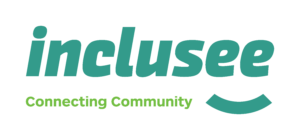
Inclusee
About Inclusee
The Inclusee community, formerly Aurous Digital, is a place where people can make new connections and revisit old ones, learn new skills, and find enjoyment in activities, interests, and events.
Inclusee are leaders in connection, positively enhancing the lives of older Australians who are vulnerable to loneliness and isolation. Their goal is to increase inclusiveness and connection by creating a community where everyone feels valued, comfortable and can belong.
Who is Inclusee for?
Inclusee’s specialised programs are designed for participants and volunteers to connect, learn and enjoy. Their programs are open to seniors in specific aged care planning regions in Queensland, New South Wales, and Victoria, as their programs are funded by various government grants.
Is there a cost to access Inclusee?
Inclusee is completely free for participants; however, some eligibility conditions apply.
How to access Inclusee?
Inclusee can be accessed online at www.inclusee.org.au or over the phone at 1800 287 687.



